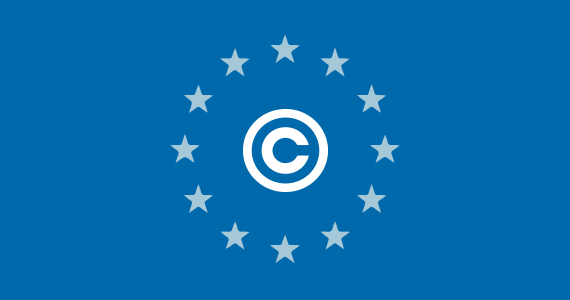
Today, the European Union officially passed the highly contested Copyright Reform Law. This law essentially requires web hosts and publishers, like YouTube, Facebook, and possibly CMS platforms like Marketpath CMS, to police content and ensure it is not copyright protected. If it is copyrighted material, the publisher must secure licensing rights, pay royalties, or block the content altogether before it is published.
This means that these publishing and sharing platforms become the police force for digital content. For the original artists and writers, this will help protect their work and potentially provide additional earnings. But for publishing platforms, especially small platforms, this can become an enormous and costly burden.
There's a lot of guestimations that happen when trying to determine how much new digitial content is produced every day. Right now, it is estimated there are over 1.5 billion websites around the world with only 10-15% of those being active sites. Active sites publish approximately 4 million new blog posts per day. For YouTube alone, around half a million hours of video is uploaded every day. And there are a couple billion new images uploaded daily. That's an incomprehensible amount of content to catalog daily.
Of course, only a fraction of that digital content is designated as protected. The rest is amateur video, photography, and miscellaneous ramblings. But there is still a huge amount of copyrighted journalism, video, music, and photography.
How does any business, big or small, keep up with this much content and then determine when new content has infringed on existing protected content? An impossible feat for just about any company. Not only is the source content insanely large the algorithms needed to efficiently search the content would be incredibly complex.
There are some tools already in place to help with this, like Copyscape, TinEye, and quetext. But we have a very long way to go to produce accurate and effective results.
Who is best positioned to scan all this new content for copyright infringement? You've probably guessed it: Google. You could throw Bing and Yahoo into the mix as well. Search engines have the computing capacity and archiving already in place to perform this type of function. Google was one of the biggest opponents of the legislation, but may be one of the biggest benefactors of it with their own content scanning services. YouTube has had copyright detection in place for video uploads for years. But it is error prone.
In addition to the actual process of identifying copyright infringements, scanning services need to improve their number of false positives. YouTube is notorious for blocking content as it tries to match copyrighted material. There's a case of a user who uploaded a video with white noise and a user working in a garden with birds chirping. Both flagged as copyright infringement and were blocked.
With the enormous amount of text content published each day, there will surely be overlaps, even when the content is original to the author. So how do we claim copyright infringement on one and not the other?
Many opponents of this legislation say catching all copyright infringements, without false positives, is technically impossible. And I completely agree. With the high potential for false positives and the sheer volume of new content published daily, an unintended result may be censorship.
The biggest problem with this legislation is that it is full of holes and ambiguity. Just like the GDPR, the final rules will most likely be decided in the courts. Once a couple of the big dogs (i.e. Google and Facebook) are sued for violating the new copyright law, we'll have a better understanding of it. In my opinion, this is a truly sad way to legislate.
Companies like Marketpath will have to wait and see the impact it has on us. I imagine we'll see some innovative new companies spin up and start offering their flavor of copyright scanning. We still have a couple years before member countries are required to implement their own laws that follow the framework. And I can almost guarantee this will trickle over to the United States in our more progressive states.